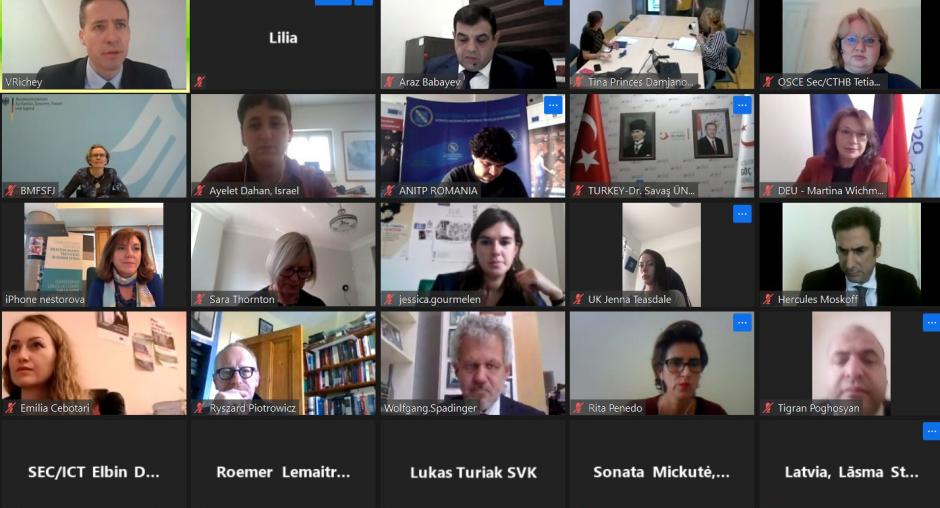COVID-19 creating risks for human trafficking crisis, say anti-trafficking leaders from over 50 countries in joint OSCE-Council of Europe meeting

VIENNA, 5 November 2020 - Leaders of anti-trafficking efforts from over 50 countries across Europe, North America and Central Asia met online on 3 and 4 November 2020 for the largest annual meeting of its kind focused on human trafficking at the international level. The event, jointly organized by the OSCE and the Council of Europe, focused on challenges posed by the COVID-19 pandemic to anti-trafficking responses.
Participants shared promising practices in the prevention of human trafficking, the protection of victims, and the prosecution of traffickers amid the pandemic. They highlighted the need for enhanced anti-trafficking action across all sectors.
“This is not the time to turn our back on trafficking and its victims; it is time to double-down on our investments and efforts,” said Valiant Richey, OSCE Special Representative and Co-ordinator for Combating Trafficking in Human Beings.
Participants underscored how the COVID-19 pandemic has created more favorable conditions for traffickers by exacerbating pre-existing vulnerabilities and creating new ones, pushing people in difficult economic circumstances into risky and exploitative situations.
“COVID-19 is testing our capacity to protect victims but will not break our resolve to combat human trafficking. In many countries, national anti-trafficking co-ordinators, in partnership with civil society, are taking inspiring initiatives to overcome the challenges posed by the pandemic,” said Petya Nestorova, Executive Secretary of the Secretariat of the Council of Europe Convention on Action Against Trafficking in Human Beings and Head of the Anti-trafficking Division of the Council of Europe.
Experts noted high-risk sectors included agriculture and food-processing industries, where opaque recruitment procedures, low-qualification requirements and low-wages created favorable conditions for traffickers. Industries characterized by long supply chains with several sub-contractors were also considered as potentially at risk for exploitation.
Lockdown measures and movement restrictions contributed to a surge in some forms of exploitation, particularly online child exploitation and so-called “webcam exploitation”. Participants recognized that these forms of exploitation made victims increasingly ‘invisible’ to the law enforcement systems and harder to reach with support services.
The meeting also focused on solutions to these challenges, including some promising national practices that have emerged in recent months. Broader use of trafficking hotlines, an increase in law enforcement presence online, and more on-site labour inspections in high-risk sectors were highlighted as positive anti-trafficking responses.
“Meetings like this, where governments can share their best practices and experiences, are a key component of what in the OSCE we call ‘co-operative security’”, said Richey. “Common challenges are tackled more effectively together and taking inspiration from peer actions adds to our common efficiency in eradicating human trafficking.”
